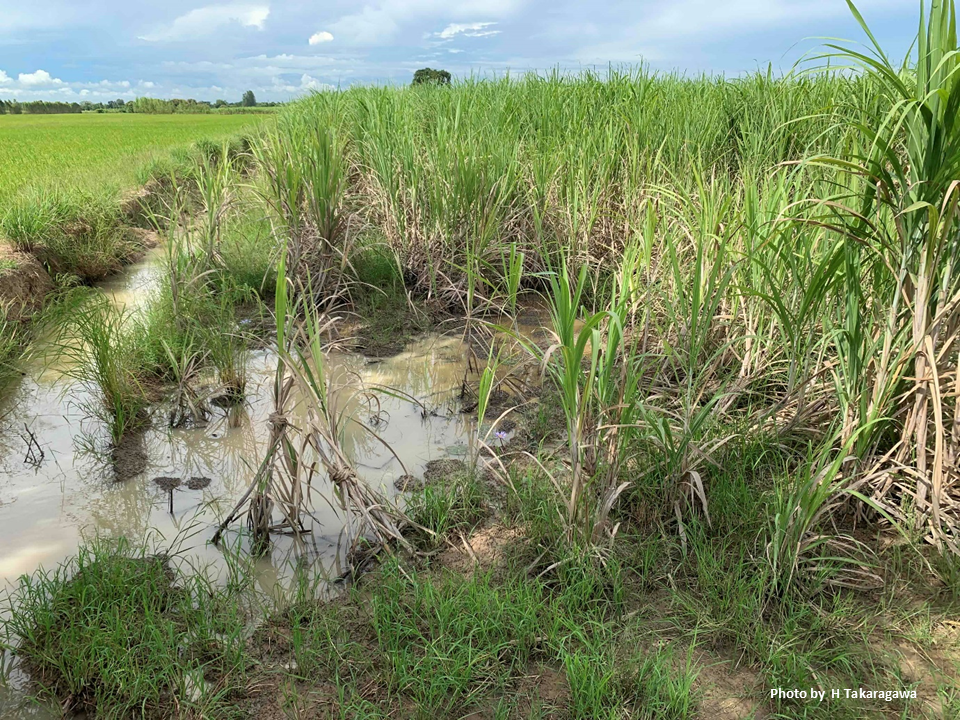Pick Up
1280. Stress Conglomerate –Multi-stress Era– (Takaragawa’s Newsletter vol. 7)

1280. Stress Conglomerate –Multi-stress Era– (Takaragawa’s Newsletter vol. 7)
To respond to climate change and achieve sustainable food production, we need to strengthen resilience to adverse environments. Researchers have been working on crop stress tolerance to evaluate resilience under single stress conditions and to improve its genetics. However, in actual farmland, growth and yield are often limited when crops are grown under multi-stress conditions, a combination of stresses rather than a single stress. Although there is a strong need for research on multi-stress tolerance, it is very challenging for researchers because of the complexity of experimental systems, and it is desirable to solve technical problems such as improving phenotyping techniques and estimating plasticity.
In recent years, unpredictable climate change has made it more difficult to achieve stable and high yields in crop production. Therefore, there is a strong need to strengthen crop resilience to environmental stresses. So far, most research on stress tolerance in crops has focused on responses to single stresses or on genetic improvement. However, in actual farmland, growth and yield are often limited because crops are grown under multi-stress conditions that combine multiple stresses, rather than a single stress.
For example, sugarcane, rice, cassava, and peanuts are grown in a tropical savanna climate with distinct wet and dry seasons in northeastern Thailand, where joint research is being conducted on sugarcane in the Tropical Crop Resources Project. In addition to sandy soil with poor water retention, the region is dominated by highly acidic soil, which makes it difficult for roots to grow, resulting in severe damage during dry-season droughts. In addition, many fields have high soil salinity, also causing flood damage during the rainy season (Jaiphong et al. 2016; Santanoo et al. 2023). In the summer, high temperatures and intense solar radiation can increase leaf temperatures and cause severe high-temperature stress when transpiration is suppressed due to stress. As such, many crops are grown under multi-stress conditions that combine multiple stresses. Because of the mixture of all kinds of stresses, one professor called it a "stress conglomerate.”
JIRCAS has produced remarkable results from such efforts in cowpea (https://doi.org/10.3389/fpls.2025.1573313). In particular, multi-stress research is extremely important and urgent for perennial crops such as sugarcane, which has a long growing season and is greatly affected by the environment. However, the experimental system is very challenging for researchers because of its complexity, such as the establishment of multiple stress treatment zones, and there have been few cases of its implementation. Improvements in phenotyping techniques that can establish a system that allows rapid evaluation of multiple points and speeds up phenotypic evaluation would be useful for multi-stress studies (Araus et al. 2023). In addition, the identification of genetic regions related to phenotypic plasticity and the solution of technical problems such as the simplified assessment of stress through the analysis of gene expression and application of growth models are expected to contribute significantly to research development. In the sugarcane targeted in my research, a cross-disciplinary team with diverse perspectives—including physiology, genetics and breeding, measurement engineering, agro-meteorology, and ecology—will conduct the study.
Contributor: TAKARAGAWA Hiroo, Tropical Agriculture Research Front
